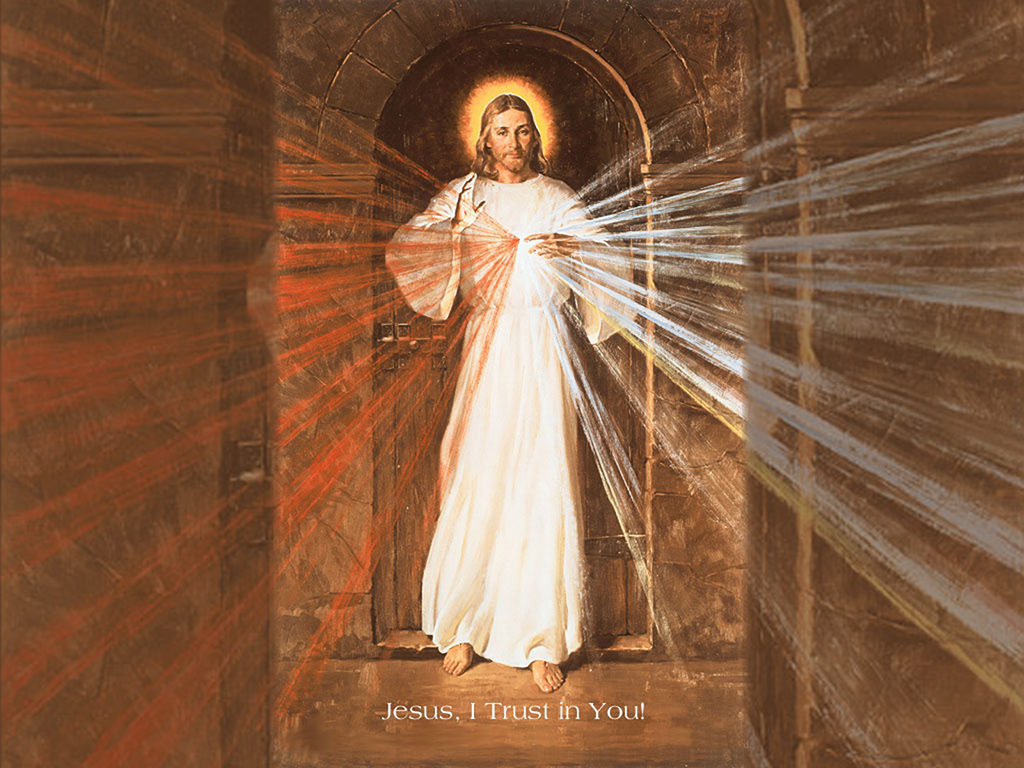
THEME: DIVINE MERCY
READINGS: Acts 5:12-16/ Rev. 1:9-13, 17-19/ John 20:19-31
2nd Sunday of Easter
This year’s Divine Mercy Sunday takes on a special significance as we celebrate the Extraordinary Jubilee of Mercy declared by Pope Francis. Mercy is ‘a kind or forgiving attitude towards somebody that you have the power to harm or right to punish’ (Oxford Advanced Learner’s Dictionary). Divine Mercy is, therefore, God’s kindness or forgiving attitude towards us despite the punishment we deserve as a result of our sins. Pope Francis puts it this way: Divine Mercy is ‘the ultimate and supreme act by which God comes to meet us.’ It is ‘the bridge that connects God and man, opening our hearts to the hope of being loved forever despite our sinfulness’ (Misericordiae vultus, 11 April, 2015, no. 2).
From the moment of the sin of Adam and Eve, God the Father has been revealed as ‘a God merciful and gracious, slow to anger, and abounding in steadfast love and faithfulness’ (Ex. 34:6). This merciful nature of the Father took flesh in the ‘fullness of time’ (Gal. 4:4) in Jesus Christ, the Son of God. Thus, Pope Francis explains: ‘Mercy has become living and visible in Jesus of Nazareth, reaching its culmination in him’ (Misericordiae vultus, no. 1). The Pope continues: ‘Jesus Christ is the face of the Father’s mercy. … Whoever sees Jesus sees the Father (cf. Jn. 14:9). Jesus of Nazareth, by his words, his actions, and his entire person reveals the mercy of God’ (Misericordiae vultus, no. 1).
The ‘great mercy’ (1 Peter 1:3) of God has been demonstrated in a unique way in the suffering, death and resurrection of Jesus Christ – the face of the Father’s mercy. He suffered so that we might be saved from the fires of hell; he died so that we might not experience everlasting death; and he arose so that we might live with him forever in heaven.
So great is the mercy of Jesus Christ that even in the midst of his excruciating suffering on the cross, he could still ask the Father to forgive us. Again, so great is his mercy that at his very first post-resurrection meeting with his disciples, he did not ask those who had denied and deserted him at his crucial hour to apologize. Rather, he took the initiative to forgive them, by saying: ‘Peace be with you’ (Jn. 20:19). And if for a moment, the gravity of their unfaithfulness to their Master made them unsure of his words of mercy, the Lord would repeat: ‘Peace be with you’ (Jn. 20:21). He then empowered them with the ministry of mercy: ‘Receive the Holy Spirit. For those whose sins you forgive, they are forgiven’ (Jn. 20:22-23).
Beloved, it might be frightening to think of the fact that God knows every sin we commit in thought, by word, by deed, or by omission. On the other hand, it is more than refreshing to know that ‘God, who is rich in mercy’ (Eph. 2:4) overlooks the punishment due to our many sins. Indeed, if God were to deal with us by his justice alone, none of us would have probably survived the punishment due to a single slight sin. Our so-called ‘slight sin’ against God deserves a great punishment, because God is infinitely superior to us. For, as an assault on the president of a nation may carry a severer punishment than a similar assault on a labourer, even more so every slight sin against God deserves a great punishment.
So beloved, if our so-called ‘slight sin’ deserves a severe punishment, and we commit several of them in a day, we can appreciate the mercy of God which overlooks not only our ‘slight sins’ but our ‘serious sins’ as well, allowing us to live on for 40, 50, 60 … 100 years, enjoying his rainfall, sunshine (cf. Matt. 5:45) and many other blessings.
What is more? God is not only overlooking the punishment we deserve, he is eager to forgive us our sins. In this respect, Pope Francis assures those who might be overwhelmed by the gravity of their guilt: God’s ‘mercy will always be greater than any sin, and no one can place limits on the love of God who is ever ready to forgive’ (Misericordiae vultus, no. 3). Beloved, by the merits of the precious blood shed on Calvary, God wipes away our sins as if we have never sinned.
Finally, therefore, let us acknowledge God’s great mercy by:
- Expressing true contrition for our sins;
- Confessing our sins;
- Making use of his graces to overcome future temptations. Amen!
By Very Rev. Fr. John Louis
